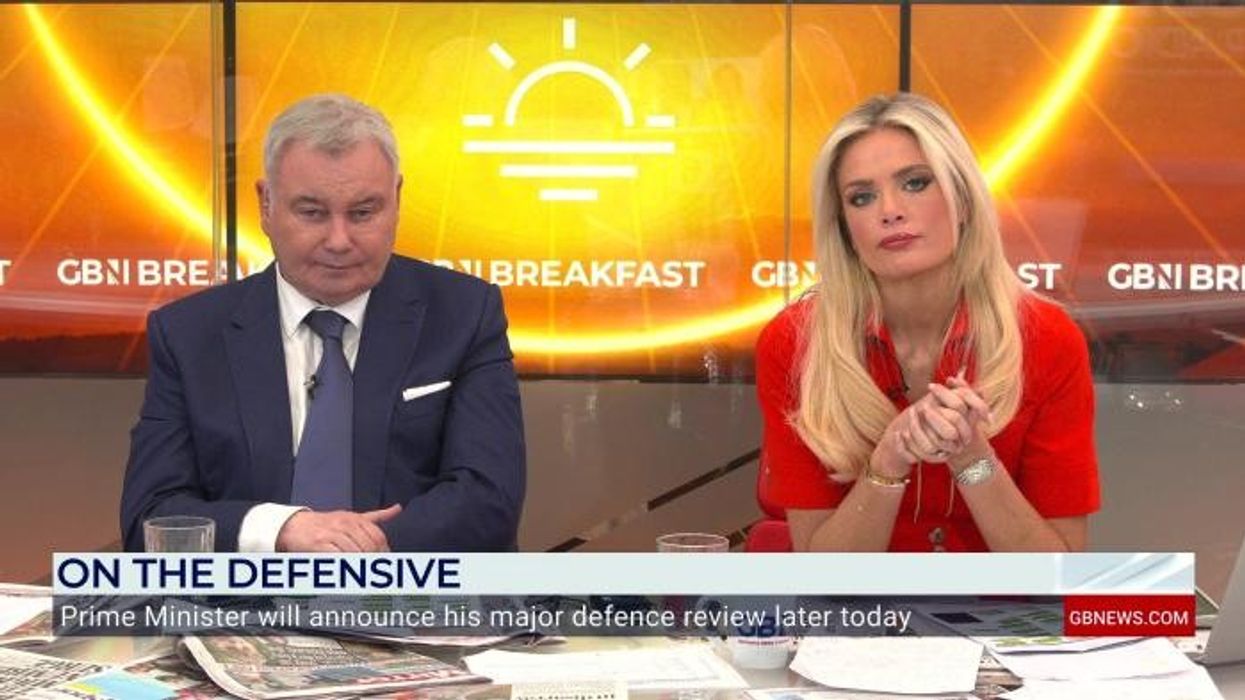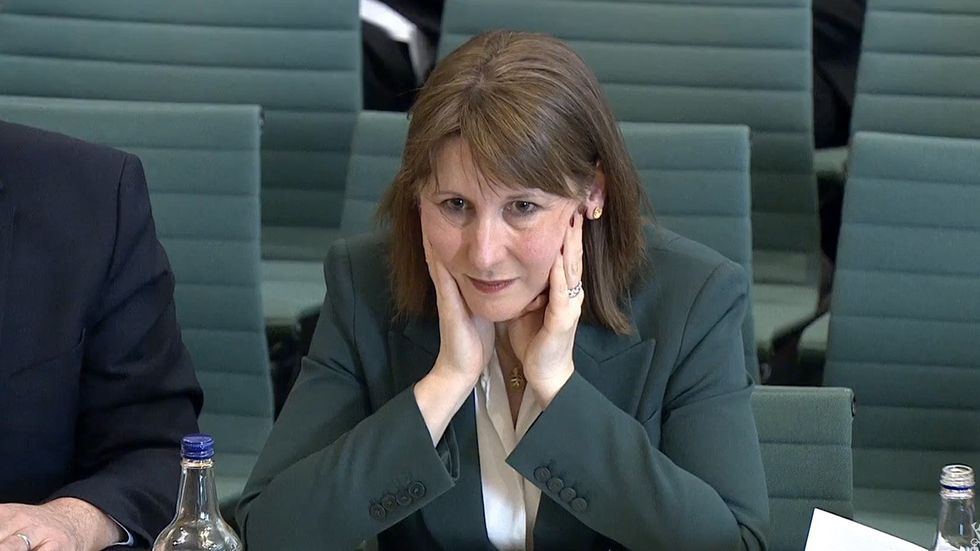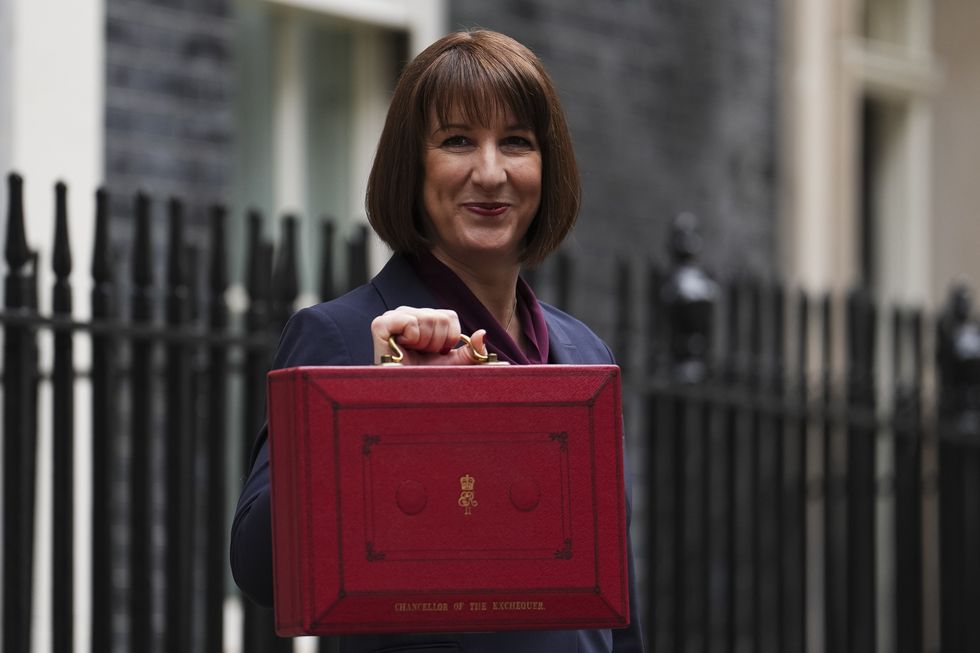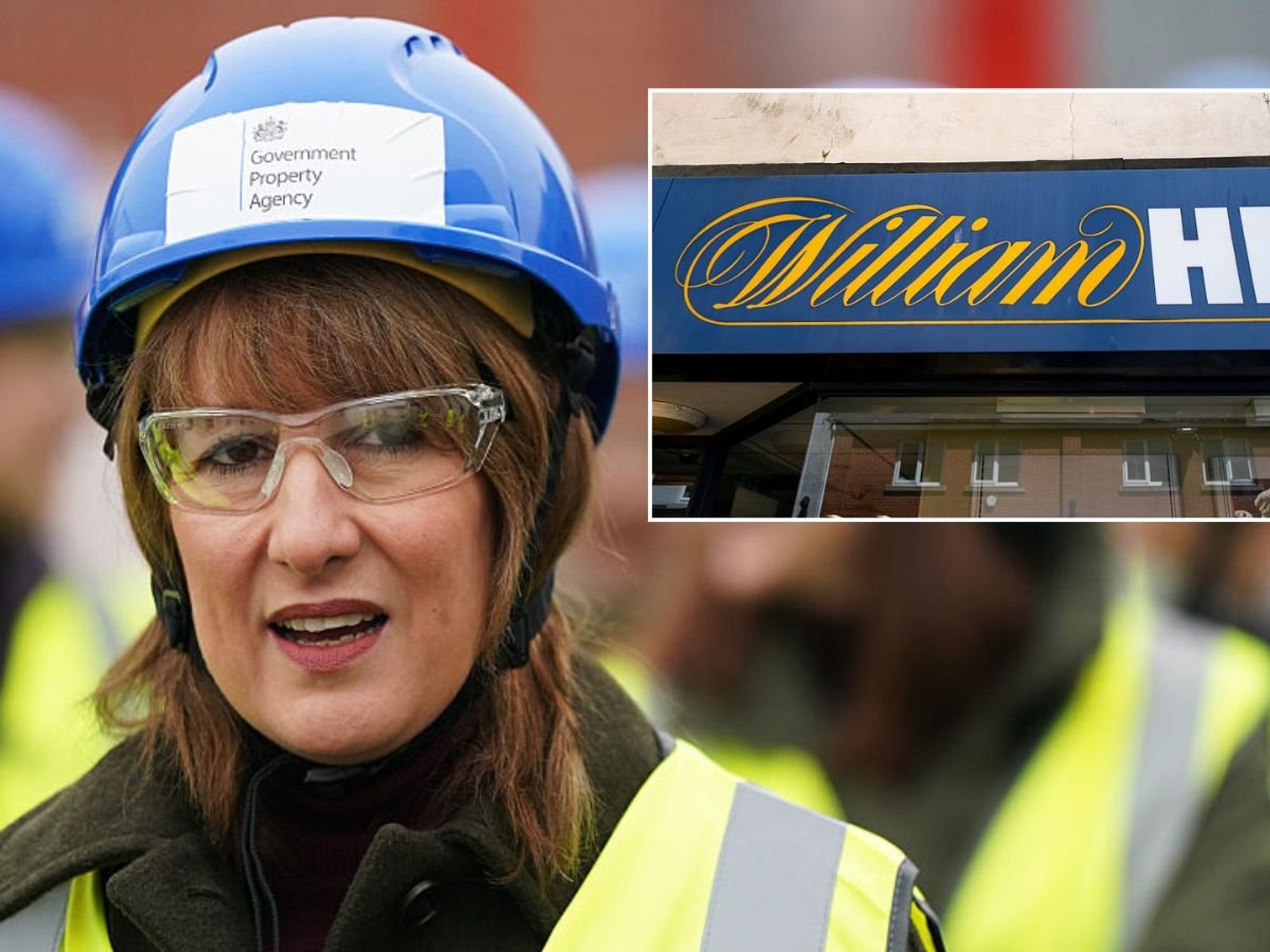Are YOU about to be hit? The winners and losers in Rachel Reeves' spending review as impossible choice looms

Defence Minister Luke Pollard joins GB News to discuss the spending review |
GBNEWS

With just £9.9billion in headroom, the Chancellor must make tough calls on what to cut and where to spend
Don't Miss
Most Read
Latest
Rachel Reeves is preparing to deliver her first major spending review on Wednesday, which will set out the Labour Government's priorities for the next three years
While the Chancellor has promised to prioritise the NHS, defence, and infrastructure, funding constraints mean other departments could face deep cuts.
Rachael Henry, head of advocacy at the Institute for Public Policy Research, said: "The spending review will set the trajectory for the rest of this parliament. And there will be winners and losers. There’ll be really difficult trade-offs."
Reeves is preparing to unveil the Government’s day-to-day spending plans up to 2028–29, along with investment commitments through to 2029–30. But there is still uncertainty over which departments will be protected and where cuts may fall.
This is Reeves's first major test as Chancellor, and she faces it with little fiscal breathing room. Government borrowing rose to £20.2billion in April - £1billion more than the same time last year - driven by higher pension and benefit payments and mounting debt interest.
Although the economy showed modest growth earlier this year, Reeves is constrained by her self-imposed fiscal rules, which require all day-to-day spending to be funded by tax revenue and for debt to fall as a share of GDP by 2029–30.
The current forecast leaves just £9.9billion in surplus, the third-smallest on record, offering minimal headroom to absorb economic shocks or unexpected spending.
Balancing the books under fiscal pressure
Reeves has pledged to meet strict fiscal rules, ruling out major new borrowing. But the Organisation for Economic Co-operation and Development (OECD) has warned that "momentum is weakening" and urged the UK to "step up" its efforts to reduce debt.
The Institute for Fiscal Studies (IFS) has said trade-offs are inevitable: "Achieving stated objectives in some areas will likely require real-terms cuts elsewhere."
Deutsche Bank takes a more positive view, with senior economist Sanjay Raja noting more "resilience than expected" in the UK economy and stronger-than-average growth forecasts through 2027. Still, Reeves faces tough choices to fund her priorities.
The Government has already committed to higher spending on defense, transport and health, but cuts are expected elsewhere.
Departments overseeing policing, affordable housing, the environment and local government reportedly faced funding squeezes, making for awkward negotiations between Reeves and various Government ministers as they looked for bigger budgets from the Treasury.
 Rachel reeves has confirmed she will not alter her fiscal rules | Parliament TV
Rachel reeves has confirmed she will not alter her fiscal rules | Parliament TVWho departments could face cuts?
Housing
There have been suggestions of significant cuts to Angela Rayner’s Ministry of Housing, Community and Local Government. The treasury has provided £2billion as a starting amount, but further funding talks have led to tensions. This is despite housing being considered a key capital investment priority. Rayner was attempting to secure billions of pounds in capital funding to build more social housing, arguing that the Government’s pledge to build 1.5 million homes by the end of this parliament would be missed otherwise.
Home Office
Reeves has refused to meet her colleague’s demands for extra police funding, despite warnings that it means the Government could miss its flagship pledges on law and order and a public intervention by police chiefs who said they faced “stark choices”.
It is understood that police spending will increase in real terms each year of this spending review period, which ends in 2028-29. However, it remains unclear whether this boost will match the more than £1 billion that officers say is needed to cover existing gaps.
Flooding
Environment Secretary Steve Reed is asking for significant investment in flood defences. The autumn budget showed a £600 million shortfall for flood and farming schemes. Labour will honour its budget promise of £5 billion in farming funding for 2024-26, so cuts would hit many farms from 2026 onwards.

It is unlikely any tax rises will be at the spending review as tax changes need a new law, which can only happen in a Budget
| PAJustice
Three prisons will be built, starting this year, after a £4.7 billion funding commitment in the spending review in an attempt to grapple with the prisons crisis.
Health
Health Secretary Wes Streeting will receive a major funding increase to support the NHS 10-year plan. The plan aims to move care into communities, improve technology use, and prioritise prevention. However, it will not be enough to meet the Government’s ambition for reducing waiting time targets. In fact, Streeting initially asked for a real-terms four per cent rise in his budget but had to settle for a 2.8 per cent rise. There are also concerns in the department that although day-to-day spending will rise, infrastructure budgets will remain flat in real terms.
Schools
Teachers will receive a four per cent pay rise next year. While £615million will be provided to cover part of the cost, schools will need to fund the remaining £400million themselves. While this extra money may sound generous on paper, in practice schools will receive £1.5 billion each year up until 2028-29, when the cumulative increase reaches £4.5 billion compared with this year.
Boiled down, this means the spending rise for education in this review totals a real-term lift of 0.4 per cent.
Luke Sibieta, a research fellow at the Institute for Fiscal Studies, said it was also unclear if the money included the teacher pay settlement reached last year. If so this would probably mean a real-terms budget freeze - although a shrinking school-age population means this would still result in a 3 per cent rise in spending per pupil by the end of the parliament.
What has already been announced?
While the Government has committed to increasing both day-to-day and investment spending, the rise is expected to be modest.
Reeves has already changed the way debt is measured, freeing up over £100billion for investment in infrastructure, research and development, and major capital projects.
- Winter Fuel Payments will go to around three-quarters of pensioners this year, after Reeves reversed plans to restrict them. The change will cost around £1.25 billion in England and Wales.
- Defence spending will rise from 2.3 per cent to 2.5 per cent of GDP by 2027, equating to an extra £5 billion a year, funded in part by cuts to the overseas aid budget. Ministers have signalled a longer-term goal of three per cent by 2034.
- The NHS is expected to receive a £30 billion boost over three years, according to reports.
- Free school meals will be expanded to 500,000 children in households on Universal Credit, regardless of income. Day-to-day education spending will increase by £4.5 billion a year by 2028–29.
- Transport investment of £15.6 billion will fund upgrades to trams, buses and trains in Greater Manchester, the Midlands, and Tyne-and-Wear — part of a shift away from London-focused infrastructure spending.
- Science and technology will receive £86 billion by the end of the parliament, targeting breakthroughs in medical treatments and energy storage.
- Energy: Net Zero - Ed Miliband’s department is likely to emerge as one of the biggest winners of the spending review as Reeves doubles down on Labour’s clean-power pledge. The Government has committed £14.2bn of investment to build the new Sizewell C nuclear plant on the Suffolk coastline, ahead of the Spending Review. Sizewell C will create 10,000 direct jobs, thousands more in firms supplying the plant and generate enough energy to power six million homes, the Treasury said.

The spending review will set the trajectory for the rest of this parliament
| GETTYPossible tax rises Reeves could consider to plug the gap
It is unlikely any tax rises will be at the spending review as tax changes need a new law, which can only happen in a Budget. However, there's already talk that any extra spending could lead to higher taxes later on, unless the economy grows enough to bring in more money for the Treasury.
Sarah Coles, head of personal finance at Hargreaves Lansdown, has outlined what might be on the table.
Dividend tax
Further changes to dividend tax could be considered, though this would hit investors hard. "Investors have already seen horrible cuts in the dividend allowance and higher rates introduced, so it would be adding insult to injury," Coles said. "It would be counter-intuitive to make dividend investing less rewarding, given that the government is keen to encourage investment in the UK."
Inheritance tax
Tweaks to inheritance tax rules may also be on the table, especially the rule that allows gifts to escape tax if the giver survives seven years. "The Government could, for example, tweak the rule, which means that gifts of any size can be given to anyone, and as long as you live for another seven years, it’s out of your estate," Coles said. "However, it will have seen the potential backlash from touching the UK’s most hated tax."
Freezing income tax thresholds
An easier option may be to freeze tax thresholds further. This would raise money gradually through fiscal drag, although it would not help immediately.
Coles explained, "One easier option might be to freeze income tax thresholds until 2030, on the grounds it’s not a tax rise. The problem is that this will raise money in future years – beyond 2028 – so it won’t help in balancing the books in the interim."
More From GB News










